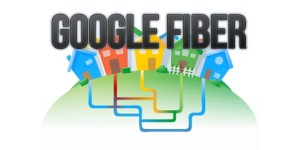Share This
Related Posts
Tags
Google Fiber
By Yardi Blog Staff on Aug 17, 2012 in Technology
While it is true that Google Fiber contains no vitamin D or riboflavin and in no way contributes to a healthy diet, it does promise some fun prizes in the bottom of the box:
- 1000mB/second = 100x faster that average Internet speeds
- Hundreds of channels, plus NetFlix, Hulu, YouTube all in one place
- Optimized HD clarity
- Record 8 programs simultaneously on 8TB storage space
Here is Google’s hipster-tisement for the service, which will have you singing “Just What I Needed” for the rest of the day:
Pricing is divided into three tiers. Broadband-only service is free (see below); 1Gbps service is $70/month; 1Gbps + television is offered at $120/month. A further $300 “construction fee” for the Internet and television services is waived if you sign a contract (broadband-only customers have to pay). The television service comes with a Nexus 7 tablet that also acts as a remote control.
And now for the bad news: you can’t have Google Fiber… yet. Bringing in fiber requires a hefty infrastructure upgrade so Google is rolling things out slowly and only to communities that express the highest level of interest. Kansas City is ground zero for the nation’s first “fiberhoods” and pre-registration ending Sept. 9 will determine which areas in the city are first to receive the new service. As for everyone else, well, we could be a while away but once the trial run in KC gets underway in earnest, you can expect pre-registration to open in additional cities.
 The big idea here is less about the technical specs – the average Internet user doesn’t need and might not even notice 100x faster service – and more about Google’s bid to dominate modern media. Google has pacted with Rovi to license its media technology to power its set-top boxes. Rovi holds over 5000 patents in the digital entertainment arena, including online and mobile applications; this is a huge step toward creating a service that can upend the telecom-cable old guard and debut a new media entertainment regime.
The big idea here is less about the technical specs – the average Internet user doesn’t need and might not even notice 100x faster service – and more about Google’s bid to dominate modern media. Google has pacted with Rovi to license its media technology to power its set-top boxes. Rovi holds over 5000 patents in the digital entertainment arena, including online and mobile applications; this is a huge step toward creating a service that can upend the telecom-cable old guard and debut a new media entertainment regime.
This is the inevitable expression of the bundling that links telephone, television, and Internet in most households. The question to ask is whether it is in consumers’ best interest for one company to control both content and infrastructure, as Google hopes to do. Google will have to prove to consumers (and regulators) that it can avoid the pitfalls that previous would-be media titans have fallen victim to, including fee inflation, arbitrary service limitations, and a tin ear toward customer service.
Also at issue is whether Google can sew up all the content loose ends to turn Google Fiber TV into a true behemoth. Discovery Channel, CNBC, Comedy Central, and several of the other cable bigwigs are on board, but names like ESPN, CNN, and HBO are still missing. Google must bring these content providers into the fold if it wants to be the go-to service for home and mobile entertainment.
My sincerest hope is that Google’s scheme means the end of “Would you like to add an affordable landline phone plan?” queries from the service rep every time I call up to get an item taken off my cable bill – if that’s all it does, then I’m ready to sign up. Are you looking forward to Google Fiber? Is it the ultra-fast online or all-in-one entertainment that appeals most? Are you still singing “Just What I Needed?”
